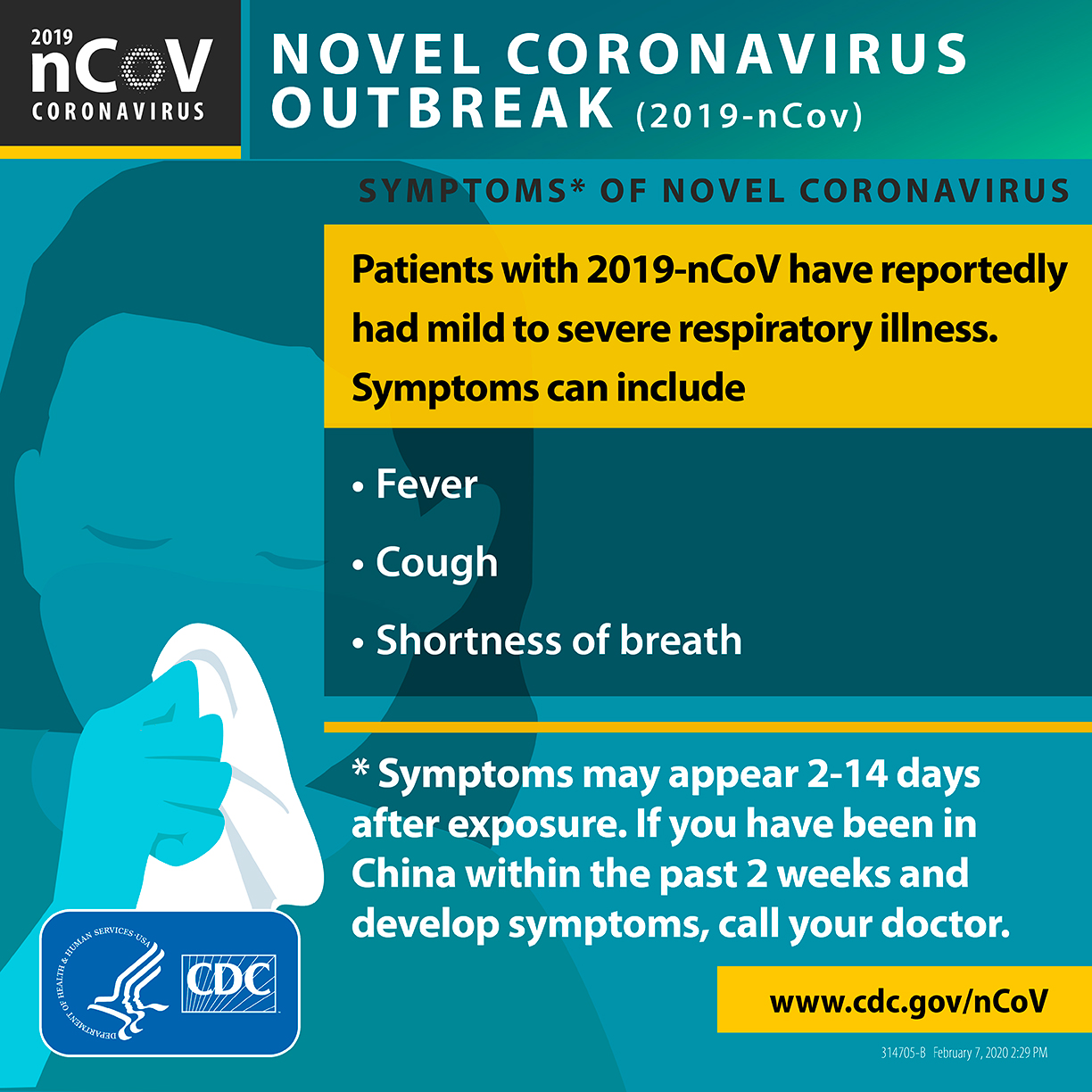Coronavirus: How Scared Should We Be?
- Category: On Our Radar
- Published: Tuesday, 11 February 2020 11:04
- Stacie M. Waldman
 In the two months since “patient 0” was diagnosed with novel coronavirus in Wuhan, China, news of the virus, dubbed 2019-nCoV has topped headlines as the incidence of the disease in humans continues to rise and the mortality rate remains high. This week, several people on a cruise ship docked at a port just south of New York City tested positive for what is being called 2019-nCoV. The Diamond Princess cruise ship docked in Yokohama, Japan has reported that 135 people on board are infected with the virus. Country by country, the viral outbreak is being classified as a public health emergency.
In the two months since “patient 0” was diagnosed with novel coronavirus in Wuhan, China, news of the virus, dubbed 2019-nCoV has topped headlines as the incidence of the disease in humans continues to rise and the mortality rate remains high. This week, several people on a cruise ship docked at a port just south of New York City tested positive for what is being called 2019-nCoV. The Diamond Princess cruise ship docked in Yokohama, Japan has reported that 135 people on board are infected with the virus. Country by country, the viral outbreak is being classified as a public health emergency.
How is it spread?
First thought to be spread only from animal to human, the CDC has now confirmed that the 2019 novel coronavirus is communicable from person-to-person similar to how influenza or other respiratory pathogens are spread (via respiratory droplets after an infected person coughs or sneezes). The “basic reproduction number,” or R0, is used by scientists to determine the average number of people who become infected by a single carrier of the virus. The flu (this flu season) has an R0 value of about 1.3; a study published Jan. 29 in the New England Journal of Medicine (NEJM) estimates an R0 value for the new coronavirus to be 2.2. This very early estimate suggests that each person who tests positive for 2019-nCoV infects an additional 2.2 people.
What are the symptoms and what is the incubation period after exposure?
According to the CDC, at this point, the incubation period seems to be between 2-14 days and symptoms range from almost none to fever, cough and shortness of breath. Some patients have a much more serious respiratory response, develop severe pneumonia and succumb to the virus. Thankfully, researchers have quickly developed an accurate and rapid method for testing for 2019 nCoV. Patients who have suspected infection or exposure to the infection can be isolated and diagnosed. If you have any of these symptoms after having contact with someone suspected of being positive for 2019-nCoV, contact your health provider immediately.
What are recommended preventative measures?
The CDC recommends regular handwashing and the wiping down of household surfaces to prevent any kind of transmission of illness, including 2019-nCoV. Covering the mouth and nose while sneezing is also suggested. Handwashing with soap and water is more effective than using alcohol-based hand sanitizer, although it should be used when regular handwashing is not possible. In light of the severity of this virus, people should stay home when sick and avoid others who seem sick. The CDC does not recommend that the general public use face masks.
Is there treatment for 2019-nCoV?
There is no vaccine and no anti-viral treatment available at this time. Once a patient has been infected, treatment is simply supportive care.
What are the current numbers for 2019-nCoV?
As of February 10, 2020, there are 12 confirmed cases of novel coronavirus in the United States and 68 cultures are pending. There have been 42,638 cases in total in 28 countries. A total of 36,080 people are currently infected with 82% experiencing mild symptoms and 18% in serious or critical condition. To date, there have been 1,016 deaths which means a very early mortality rate estimate of around 2.4% which is higher than the mortality rate for seasonal influenza.
What is Westchester County doing about the potential for 2019-n-CoV?
The New York State Department of Health has set up a hotline at (888) 364-3065 (8 a.m. to 8 p.m.) where Department of Health experts will be available to answer questions and concerns. You can also call your health provider if you are feeling ill or have questions.
Dr. Judy Stone, an infectious disease expert, recommends, "Any new infection is scary because of the unknowns. Just as with influenza, you can markedly reduce your risk of infection by careful and frequent handwashing (and use a paper towel to turn off the faucet!) and keeping your hands away from your face." And as the CDC suggests, stay home if you are sick.







